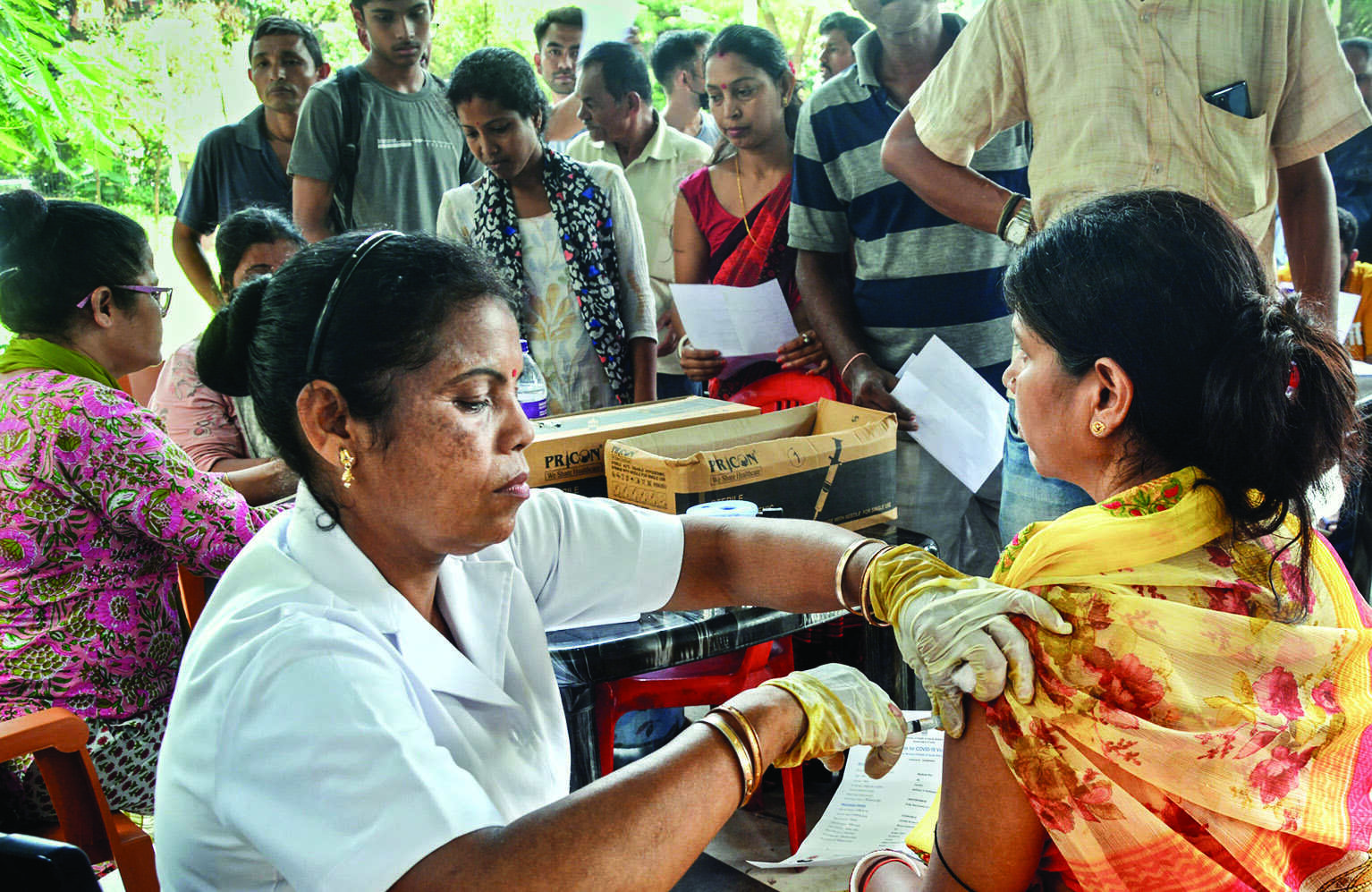Closely following Covid trajectory in India, world: MoS Health

New Delhi: Given the emergence of Covid variants with variable transmissibility and other public health implications, the Union Health ministry is closely following the Covid trajectory globally and in the country, the Rajya Sabha was informed on Tuesday.
Funding support has been provided to states and Union Territories (UTs) for health system strengthening to meet any exigency due to the resurgence of cases in the country through the National Health Mission, State Disaster Response Fund (SDRF), Emergency COVID-19 Response and Preparedness packages, and PM Ayushman Bharat Health Infrastructure Mission, Minister of State for Health Bharati Pravin Pawar said in a written reply.
She was responding to a question on whether the government foresees any new wave or variant of Coronavirus in the coming future. "Given the emergence of variants of COVID-19 virus with variable transmissibility and other public health implications, the Union Ministry of Health is closely following COVID-19 trajectory globally and in the country along with various expert committees," the minister underlined.
In addition, the Indian SARS-CoV-2 Genomics Consortium (INSACOG) of laboratories is taking whole genome sequencing of samples for detection of mutant variants of the virus, she said.
The Health ministry provides requisite support to states/UTs to enhance preparedness and response capacities against the deadly infection.
On the progress achieved in vaccinating the complete population of India, Pawar said the National COVID-19 Vaccination Programme is targeted towards vaccinating all those above 12 years of age.
Notably, the cumulative Covid vaccine doses administered in the country have crossed 200 crore, covering 98 per cent of the eligible population in the country with the first dose and 90 per cent have been fully vaccinated.
In addition, over 5.06 crore precaution doses have been administered in the country.
India logged 15,528 new Coronavirus infections taking the total tally of cases to 4,37,83,062, while the active cases dipped to 1,43,654, according to the Union Health ministry data updated on Tuesday.
The active cases had been showing an upward trend since May 23. The death toll climbed to 5,25,785 with 25 new fatalities, the data updated at 8 am stated.
The active cases comprise 0.33 per cent of the total infections, while the national Covid recovery rate was recorded at 98.47 per cent, the ministry said.
A decline of 610 cases has been recorded in the active Covid caseload in a span of 24 hours.
Meanwhile, the government informed Parliament on Tuesday that the mathematical modelling approach adopted by the WHO to project excess mortality estimates related to Covid suffers from erroneous assumptions and is unscientific and India had registered its strong objection to this methodology.
India had objected to the 'one size fits all' approach adopted by the WHO as it might be true for smaller countries but cannot be applied to a huge and diverse country like India which had varied case trajectory across multiple states and at different periods during the pandemic, Pawar said in a written reply.
She was responding to a question on the World Health Organization (WHO) stating that the number of people who died of Covid in India is 47 lakh.
As on July 16, 2022, as reported by states and UTs, 5,25,660 deaths due to Covid have been reported in the country, the reply said quoting India's official data.
The WHO, based on a mathematical modelling exercise, has, however, projected an estimate of about 47 lakh excess deaths in India associated directly or indirectly with the COVID-19 pandemic, between January 1 2020 and December 31, 2021. This is primarily an estimate of deaths due to all causes which includes deaths due to Covid also.
"The mathematical modelling-based approach by WHO suffered from a number of inconsistencies and erroneous assumptions.
"India had highlighted against the classification of certain countries under tier-1 while they had displayed data inconsistencies in reporting and placing India under tier 2 while India has followed a robust system of data reporting," Pawar said in the written reply.



